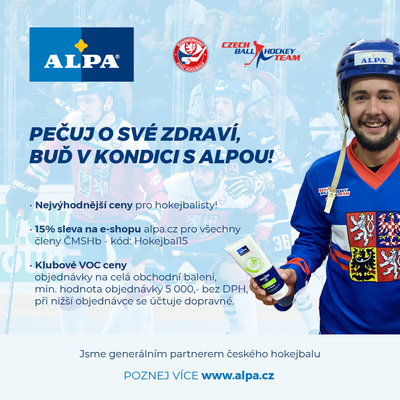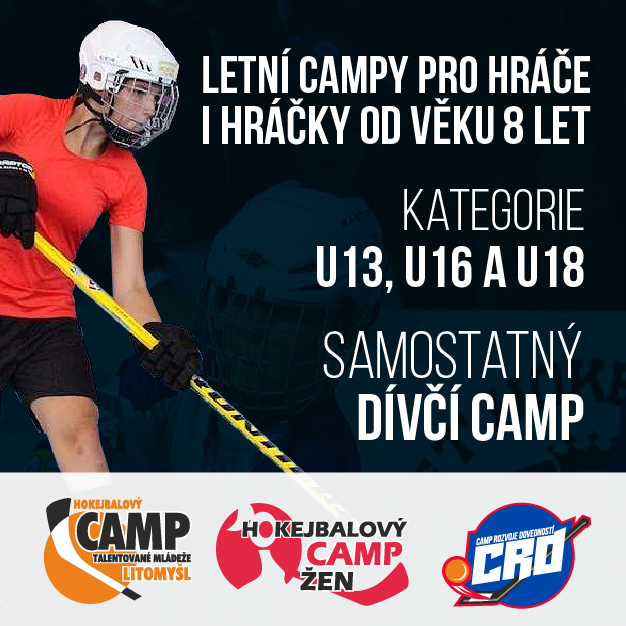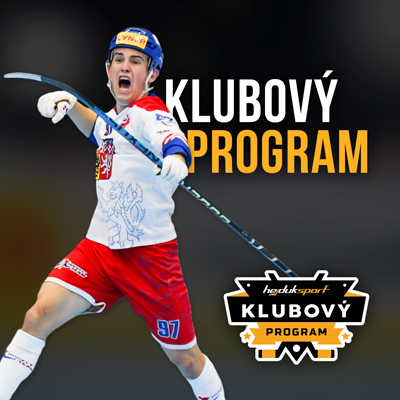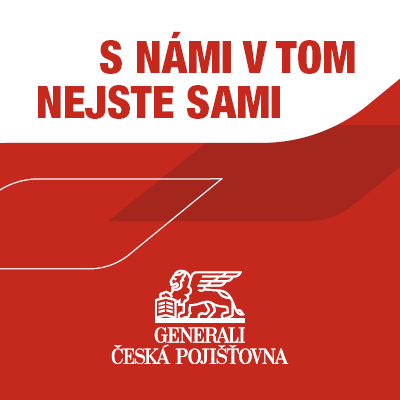Stars Don’t Win Titles, but the Heart of the Team Does, Says Boris Oravec

Slovakia boasts four consecutive world championship titles in ball hockey, and Boris Oravec was part of each one. This experienced forward has always been a key piece of Slovakia’s golden ball hockey team and reminisces about all of his achievements. What did his time at Kert Park Prague bring him?
Ninety Percent of Success Lies in the Net
Boris, let's start by talking about your international career. Between 2013 and 2019, you won the world championship title four times. How do you reflect on those moments, and what did they mean for your career in ball hockey?
Those were amazing feelings. Each title was unique and special; you just can’t get enough of it and always want to experience it again and again. I have the most beautiful memories that will stay with me for life, and no one can take that away.
What made this golden generation so special, and what do you think was its greatest strength?
First and foremost, we always built a great team atmosphere. The players were in their prime, with plenty of experience from tough games. Our long-time national coach, Jožko Ďuriš, played a big role in that. And, of course, we had top-notch defense and goalies. You can have the best team in the world, but you also need luck and other factors to make everything fall into place. But in goal, you’ll find ninety percent of success. For three of those titles, Stanislav Petrík was in the net, and for the fourth, we had an excellent replacement in Patrik Polc, who kept us in the game. In the end, I’d say it’s not the stars who win titles, but the heart of the team.
Could you pick out one of these four championships that was the hardest to win?
Yes, we would all probably agree that the 2015 championship in Zug, Switzerland, was the toughest. We had some struggles in the group stage, but when it mattered most, we pulled together and fought our way to the final, where we won against the USA in overtime. We reached the absolute limit of our strength, and after this title, there wasn’t much celebrating because everyone was so exhausted they slept all the way home on the bus. We saved the celebrations for when we got back to our loved ones.
You managed to score a goal in each final. What motivated you to give your best performances in these moments, and what’s your overall mentality?
I always try to be at my best in the most important games. Don’t get me wrong, I prepare seriously for every match, but subconsciously, I feel like I’m gearing up for those toughest moments when the team will need me most. When others start to tire, I can switch into a different mode. I love finals. Some players crumble under pressure, but that’s when I feel at my best, and these are the moments I trained physically and mentally for so that I’d be ready.
The last two tournaments, in Canada in 2022 and this year in Switzerland, weren’t as successful for Slovakia, as you didn’t make it past the quarterfinals. There were still some players from your golden era, along with new additions. In your opinion, what were the reasons for this lack of success, and why did you leave both tournaments without medals?
That’s how it goes sometimes. You can’t keep winning forever. There are ups and downs, and we had a lot of new faces on the team. Our young players need to gain experience because ball hockey at the World Championship is on a completely different level than in the league. You’re up against the best players in the world, and playing on large rinks is a huge change. But I sense great potential; it just takes time to build a strong generation again.
This year, the head coach of your team was Milan Rampáček, one of your teammates from the golden years. How would you describe him?
Milan is a kind-hearted person. Anyone who knows him has to like him. He’s very responsible in his preparation, whether as a player or now as the head coach of the national team. He still has a lot to give, and knowing him, he’s learned a lot from this year’s World Championship and is working to bring Slovak ball hockey back to the top.
You’re one of the most experienced players on the Slovak team. What role did the coaches expect you to play?
I think they expected me to mentally guide the guys, point them in the right direction, and help the team when it needed it most.

Czech Ball Hockey Is More Technical and Tactical
Now let’s move to the club scene. In Slovakia, you’ve played for three clubs: Kežmarok, Považská Bystrica, and most recently Poprad. You managed to win a title with Považská Bystrica, though you were also close while playing for Kežmarok in 2017 when you lost the final to Skalica. Why didn’t you win the title that year?
Because the details make the difference, and we were missing a few of those details at the time. We fine-tuned everything later at Považská Bystrica, where we finally got it right.
Do you still regret not winning a big victory with your home club under the Tatras?
Sometimes I regret it, but I always looked ahead, and everything happens for a reason. There’s no such thing as coincidence, and over time, you come to understand the meaning behind it all.
We can’t overlook your time in the Czech Republic, where you played half a season with HC Kert Park Prague and won the Extraliga title with them. How do you look back on that experience, and how did your transfer come about?
I have very fond memories of my time in Prague, both in terms of ball hockey and personally. I met many amazing people and formed friendships for life. It was a great experience, and I owe it to my friend Radovan Dejnek, who brought it up to the club. There was mutual interest from both sides, and after the league was halted in Slovakia due to Covid, the manager of Považská Bystrica, Martin Kolek, allowed me to finish the season with Kert Park.
When you compare the Czech and Slovak Extraligas, what would you say are the main differences between the two?
The biggest difference I see is in the quality of refereeing. There are some exceptions in Slovakia, but in the Czech Republic, the level and consistency are much higher. As for the game itself, in Slovakia, I felt like the play had more "drive"—it was more aggressive and direct. In the Czech Republic, the ball hockey is more technical and tactical, largely because they’ve been playing on plastic surfaces for a long time. Also, the quality of the coaches seems higher at the club level. I don’t want to forget to mention my experience at Kert Park. I’m very grateful for it, and I had the opportunity to play under, in my opinion, the best ball hockey coach in the world, David Kuna.
In addition to the successes we’ve discussed, you’ve also won the Orságh Cup, the largest ball hockey tournament in Europe. Could you tell our readers a little more about this tournament?
It’s an excellently organized tournament that’s hugely popular in Slovakia. In terms of organization and facilities, it feels like a World Championship. It’s held in a hockey stadium and adjoining halls, and it’s incredibly tough to succeed in this tournament. After many years, we finally managed to win it.
One last question: Will we still see Boris Oravec running around ball hockey rinks?
I believe so. At the moment, I’m thinking about where I’ll play next, and I’ll see if it will be in Slovakia or the Czech Republic. But if my vision aligns with the club’s vision in the upcoming season, I’ll definitely go for it with energy and determination.
International Achievements:
4x World Champion (2013, 2015, 2017, 2019)
Club Achievements:
1x Slovak Extraliga Champion with Považská Bystrica (2015)
1x Czech Extraliga Champion with Kert Park Prague (2021)
2x Slovak Extraliga Runner-up (Kežmarok 2017, Považská Bystrica 2019)
1x Orságh Cup Winner (2023)
Individual Achievements:
2x Slovak Extraliga MVP (2019, 2020)
2x Orságh Cup MVP (2016, 2018)
2x Slovak Extraliga Top Scorer (2017, 2019)




